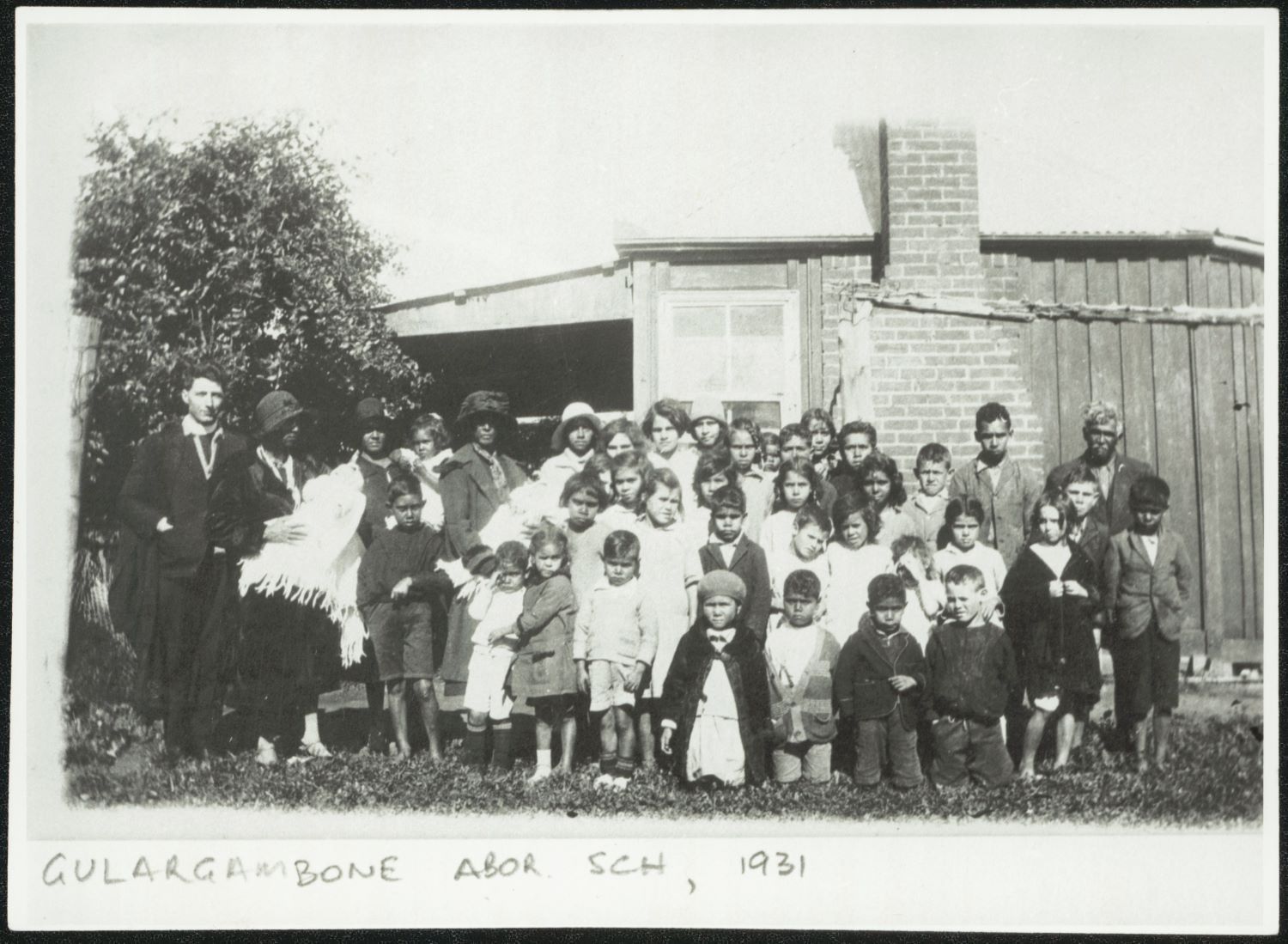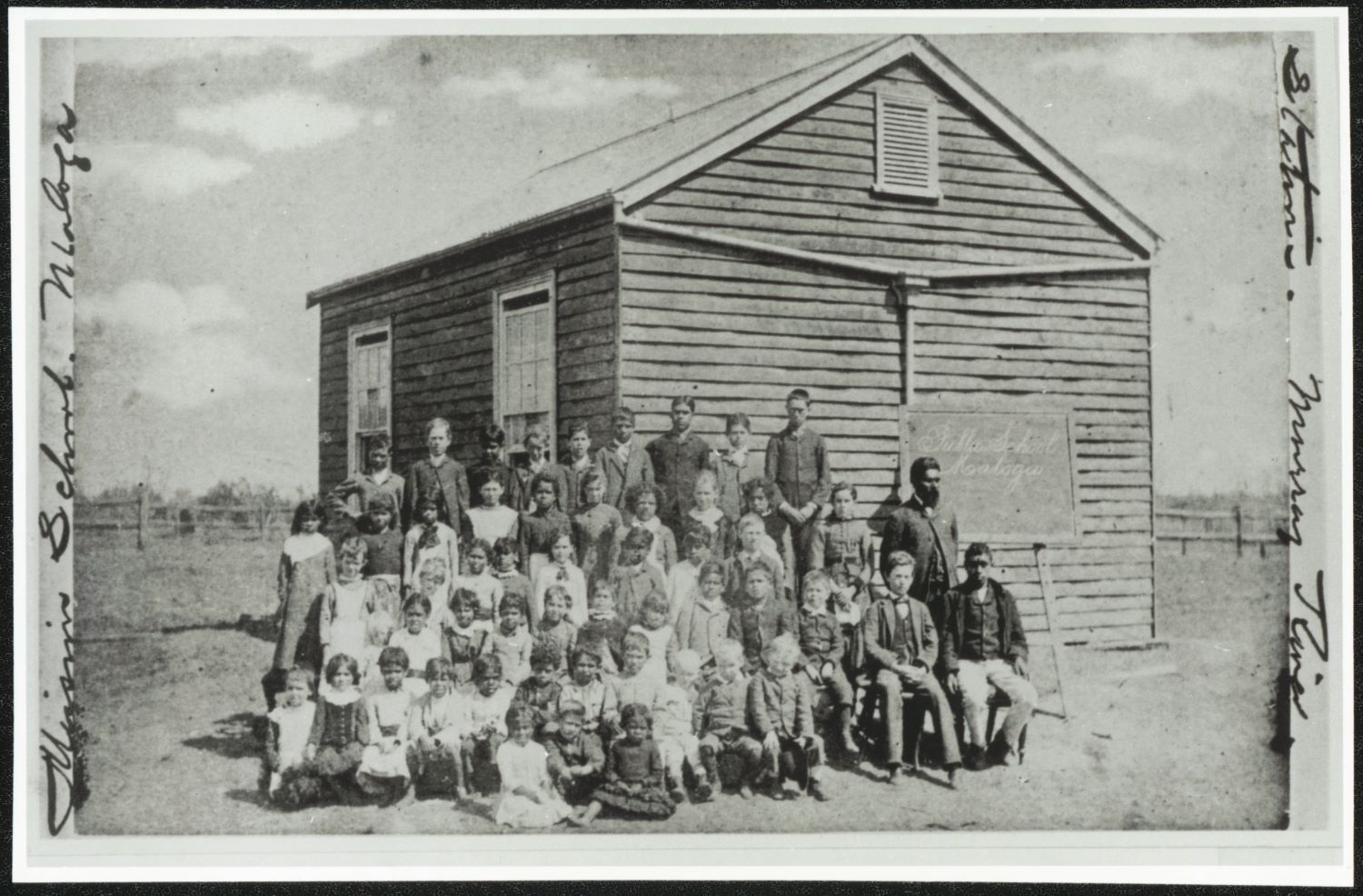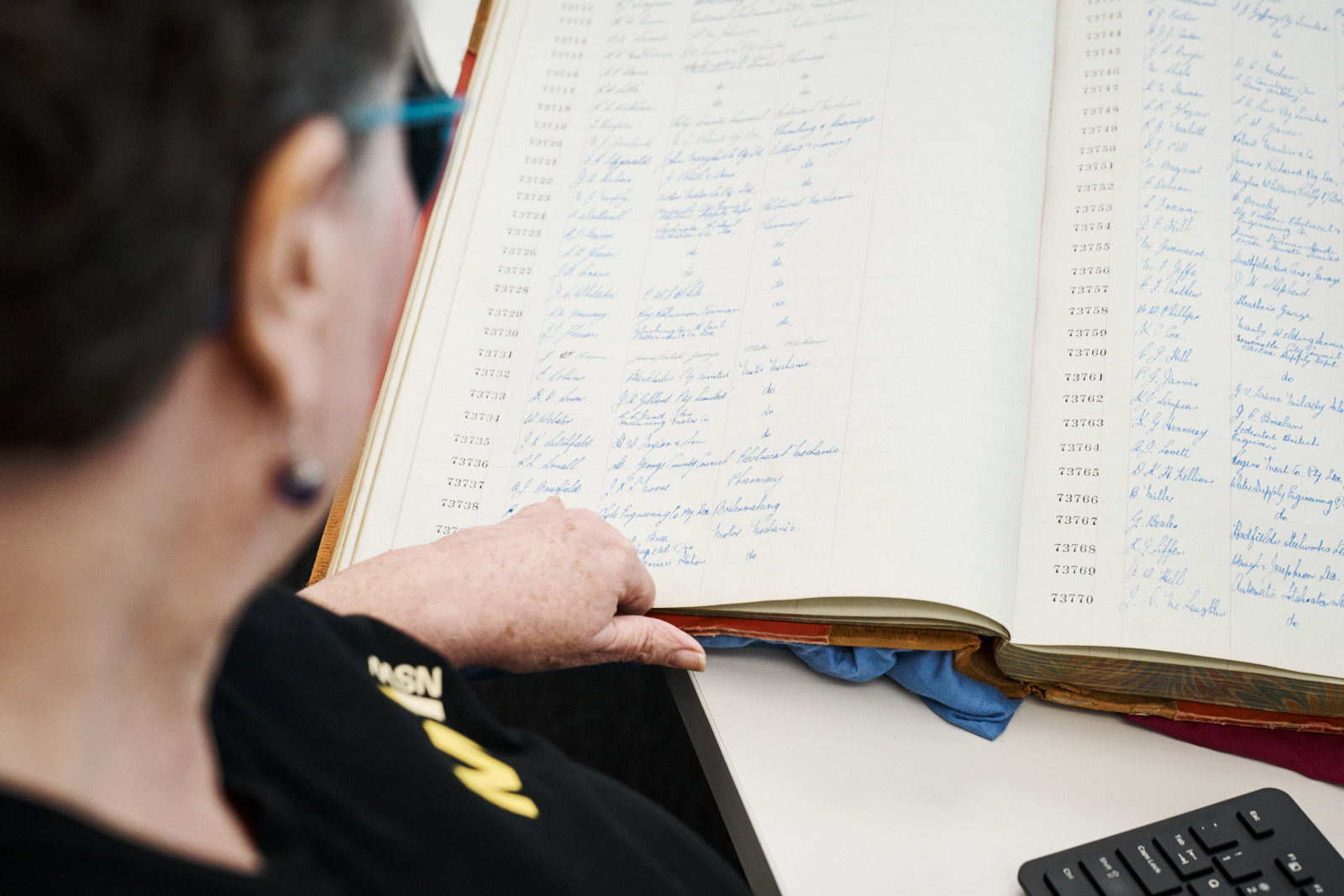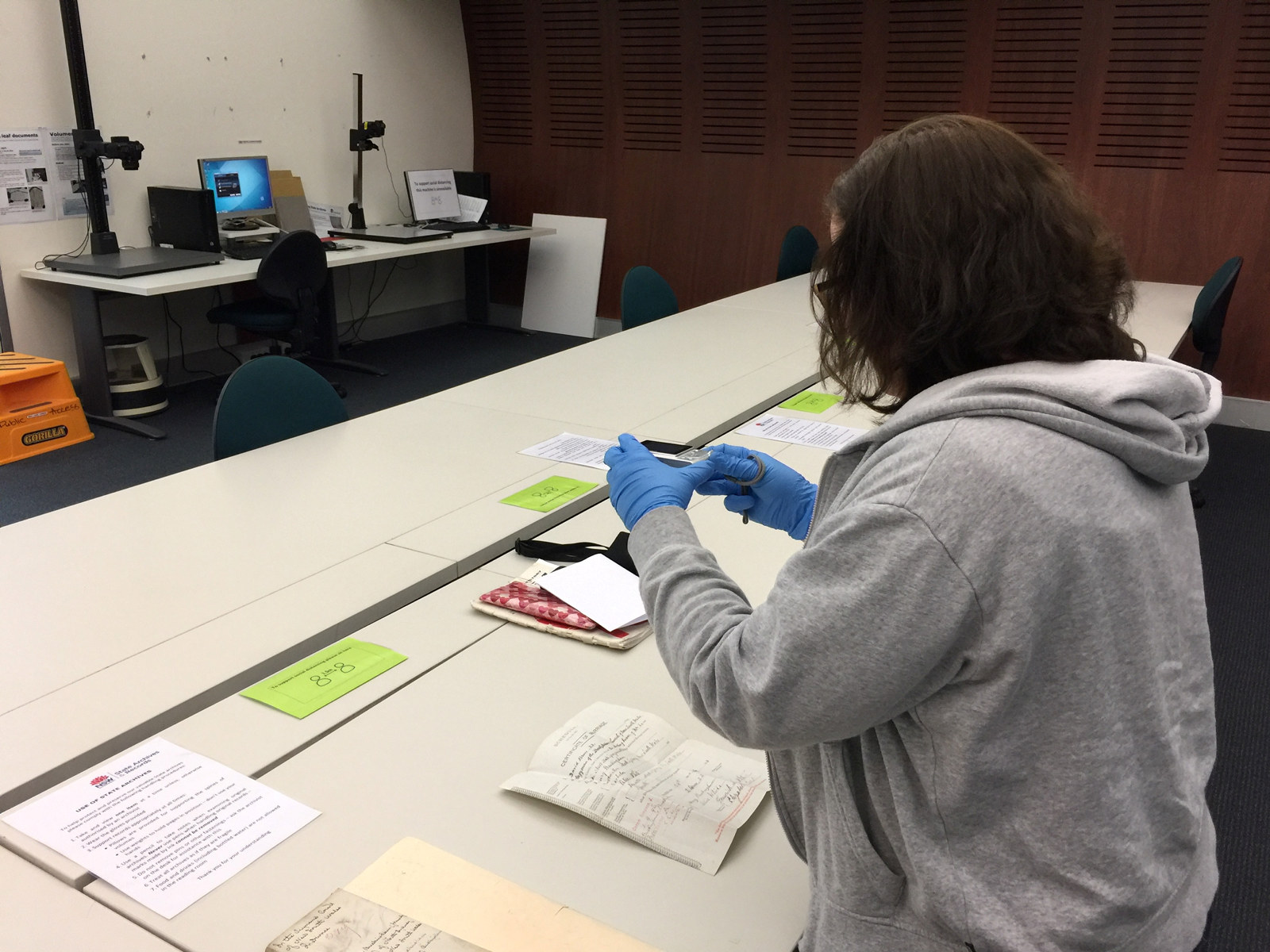Aboriginal resources: an overview of records
A brief overview of the State archives that document the NSW government's interaction with Aboriginal people from 1788 until today
Records held as State archives
We hold a significant number of records as State archives that document the governments' dealings with Aboriginal people. The nature and impact of these dealings has varied greatly over time according to the policy of the day.
The records were usually created by public servants including those at stations and by reserve managers. Unfortunately not all records have survived and many are incomplete due to destruction or loss.
Note on content of some records
Researchers should be aware that the records may contain language, descriptions and opinions which reflect the author's attitude or that of the period in which the records were written. Aboriginal and Torres Strait Islander people may consider some of the records to be inappropriate and offensive.
How to find information in archives
State archives are kept in the original order in which they were created by government agencies. To find records relating to people it is important to know what government agencies they may have had contact with.
While State archives relating to Aboriginal people can be found throughout the collection there are some functions and agencies of government that have created more records about Aboriginal people than others. To help people identify agencies and find records we have published A Guide to New South Wales State Archives relating to Aboriginal people (available in the Reading Room). The Guide lists only those records in our custody which had been arranged and described as of 1998. Researchers should ask our staff about records not included in the Guide.
Related guides
Significant agencies
The implementation and administration of policies affecting Aboriginal people has been conducted by many government agencies overtime from the Colonial Secretary's Department and the Aborigines Welfare Board to current agencies such as the Department of Aboriginal Affairs. Agencies that carry out functions such as Education, Health, Social and Community Services, Law and Order and Labour are also likely to create records relating to Aboriginal people.
Aboriginal Schools
The establishment of separate Aboriginal Schools in New South Wales led to the creation of records dealing almost exclusively with the primary education of Indigenous children.
Native Institution, 1814
Governor Macquarie founded the first school for Aboriginal children, the Native Institution, in 1814. Located in Parramatta it operated until 1822 when it was succeeded by the Native Institution at Blacktown, which closed in c.1830.
Records relating to the Native Institutions can be found in the Colonial Secretary's Papers, 1788-1825 and in the catalogue under Agency 401 (Trustees of the Clergy and School Lands).
1880+
Education for all children in New South Wales became compulsory in 1880 with the proclamation of the Public Instruction Act. Initially the Act supported one public school system. Over time social attitudes, supported by the policies of the Department of Public Instruction, led to the establishment of separate Aboriginal Schools.
Early policies supporting segregation permitted Aboriginal children to attend the local school only if they were considered adequately dressed and well fed, or 'clean, clad and courteous' [1]. The practice of separating Aboriginal children from the non-Aboriginal local school system was illustrated in 1902 with the 'exclusion on demand' policy. The then Minister of Education gave instructions to schools in NSW to remove Aboriginal children upon the request of white parents. The removal of Aboriginal children from local schools created a continuing need for separate Aboriginal Schools.
What school records are available?

NRS-3829 (part) List of Aboriginal school files, 1876–1979
An alphabetical listing of Aboriginal schools that operated in NSW. Records include applications for the establishment of schools, the school's progress, teachers, and proposed schools

NRS-3931 (part) Aboriginal school records, 1876–1979
A list of school records for those Aboriginal schools administered by the Department of Education and Training. Records include admissions, examination, observation & punishment books, visitors & stock book, staff meeting records
Aborigines Welfare Board, 1883-1969
The Aborigines Welfare Board (AWB), and its predecessor the Aborigines Protection Board, was the main NSW State government agency responsible for implementing and administering legislation and policies affecting Aboriginal people. The records of the Board are important because they document activities that had a major impact on the lives of Aboriginal people, in particular the 'Stolen Generations' who were removed from their families and communities.
The Board for the Protection of Aborigines was established on 2 June 1883. Comprising six members appointed by the Governor it held weekly meetings at which recommendations concerning the State's Aboriginal population were considered.
The Board functioned without any statutory power until the Aborigines Protection Act 1909. Under this Act the board was enlarged and given the duty 'to exercise a general supervision and care over all matters affecting the interests and welfare of Aborigines and to protect them against injustice, imposition and fraud.' The Board wrote regulations that established local boards for the management of Aboriginal Stations. The Boards principal expenditure was for the distribution of rations, clothing and huts for accommodation.
The Aborigines Protection Amending Act 1915 gave the Board the power to assume control and custody of Aboriginal children if it believed this action to be in the moral or physical interest of the child, and to remove the child to "such care and control as it thinks best".
The Board was reconstituted again under the Aborigines Protection (Amendment) Act of 1940, and its name changed to the Aborigines Welfare Board. The duties of the new Board were to: apportion, distribute and apply moneys for the relief or benefit of Aboriginal people; or to assist them in obtaining employment; maintain them whilst employed or otherwise to assist them to become assimilated into the general life of the community; distribute blankets, clothing, and relief to Aboriginal people; provide for the custody and maintenance of Aboriginal children; manage and regulate the use of reserves; exercise a general supervision and care over all Aboriginal people and over all matters affecting their interests and welfare, and to protect them against injustice, imposition and fraud; arrange for the inspection at regular intervals of each station and training school under the control of the Board.
The Board could establish and name homes for the reception, maintenance, education and training of wards (children admitted to the control of the Board) and indenture wards to apprenticeship or employment.
The Board held its final meeting on 29 April 1969 and was replaced by the Aborigines Welfare Directorate, Department of Child Welfare and Social Welfare (later the Aborigines Services Branch, Youth and Community Services).
AWB Examples of records
Not all records of the Aborigines Welfare Board have survived and many are incomplete due to destruction and loss. The main surviving series of records of the Board are listed below.
Administrative records
Series | Title | Dates |
|---|---|---|
Minute Books | 1890-1901, 1905-1906, 1911-1969 | |
Correspondence Files | 1949-1969 |
AWB Photographs, c.1919-1966
Care when viewing the photographs
Some Aboriginal or Torres Strait Islander communities may be distressed by seeing the name or image of a community member who has passed away.
- NRS 30 Photographs c.1924-1961
(Reels 2796-2797; Aperture Cards 8186-9224; COD 423)
These images are the surviving photographic records of the NSW Aborigines Welfare Board. There are approx. 1000 black and white photographs of Aboriginal people taken between 1919 and 1966.
Who's in the photographs?
The photographs are a mixture of official and personal subjects. Most of the photographs were taken to document the work of the Aborigines Welfare Board and to promote its policies. The collection includes images of christenings; first communions; weddings; birthdays; Christmas parties; children visiting Sydney for annual summer camps; and people participating in sporting activities, such as football, cricket and swimming. The more personal photographs of people range from formal studio portraits of young Aboriginal women in the 1920s to snapshots in the 1950s and 1960s.
Official photographs include interior and exterior views of housing projects and schools. Also included are photographs of pupils and teachers, station managers and matrons. They also record the visits of Government officials.
A lot of what we know about the images comes from personal and official inscriptions found on the reverse side of some of the photos and from links that have been made with other Aborigines Welfare Board records. Important information is also coming from the memories and experiences of people pictured in the photos or from the confirmation of their families and communities.
All of this valuable detail is going into a photographic database, which will enable visitors to our reading room to search for individuals, places and institutions. Many of the photographs are still undated and the people shown unknown.
Where were they taken?
The photographs were taken throughout New South Wales at many reserves and stations. A small number of photographs were taken in Queensland.
Access to the records
Records that are open to public access
Most State records are open to public access once they are 20 years old. An example is the records of Aboriginal schools.
How to access records that are open to public access
Visit the State Archives Reading Room at Kingswood.
To access original records you will need a reader's ticket; to obtain a reader's ticket you need to show identification to confirm your name, address and signature.
Records that are closed to public access
Records that contain sensitive, personal information, such as those from the Aborigines Welfare Board that mention people by name, are Closed to Public Access (CPA) for a longer period. For example:
- the Ward Registers of the Aborigines Welfare Board are closed to public access for 100 years
- the Minute Books from the Aborigines Welfare Board are closed to public access for 100 years.
Access directions are made by the government agency that is responsible for the creation and/or administration of the records, including those held as State archives for continuing sensitivity. For example:
- access to the records of the Aborigines Welfare Board is administered by Aboriginal Affairs NSW.
Our catalogue and the Register of Access Directions provide details on what records are open and what records are closed to public access. You can learn more about public access to State records in the Access to the Records guide.
If you are unsure what records are open or closed to public access our staff can help you.

Access to State archives - your rights
The State Records Act establishes a general entitlement to access to State records that are at least 20 years old

Register of access directions
This register lists access directions to State records under the State Records Act 1998
How to access records of the former Aborigines Welfare Board that are closed to public access
Aboriginal Affairs NSW (AANSW) is the government agency responsible for the records of the former Aborigines Welfare Board. To access closed records you will need to contact the Family Records Service. AANSW are also responsible for assessing access to records for non-family research. The website provides details of their services and copies of application forms.
AANSW will check indexes to identify if there any records relating to your request. If there are any records, and they approve your application, AANSW will either send you copies of the records or send you a letter authorising access and/or copying of the relevant records at NSW State Archives.
Family Records Service, Aboriginal Affairs NSW
Level 6, 201 Coward Street
MASCOT NSW 2020
Telephone: 1800 019 998
Fax: 02 8362 6688
Email: enquiries@aboriginalaffairs.nsw.gov.au
Family history email enquiries: familyhistory@aboriginalaffairs.nsw.gov.au
Application process
AANSW will check indexes to identify if there any records relating to your request. If there are and they approve your application the AANSW will either send you copies of the records or send you a letter authorising access and/or copying of the relevant records at NSW State Archives.
If you receive a letter you will need to present the letter authorising you to view the records when you visit the State Archives Reading Room at Kingswood. If you are viewing original records you will also need to apply for reader's ticket. You will need one form of identification to obtain a readers' ticket.

Reading Room
State Archives Reading Room
The largest collection of records relating to the history of NSW and the lives of its people
Dharug Country
State Archives Reading Room
Help in accessing records
Link-Up services
Link-Up (NSW) Aboriginal Corporation was founded in 1980 to assist all Aboriginal people who have been fostered, adopted or raised in institutions to reconnect with their family.
Link-Up NSW Aboriginal Corporation
PO Box 185, St Marys NSW 2760
Telephone: 1800 624 332 or (02) 9421 4700
Email: linkup@nsw.link-up.org.au
Other organisations that hold records
In NSW
- Aboriginal Affairs NSW - working to achieve social, economic and cultural independence
- AIATSIS - Australian Institute of Aboriginal & Torres Strait Islander Studies. AIATSIS has an Aboriginal and Torres Strait Islander Biographical Index (ABI) available to search online. The ABI is a personal name index to published material held in the AIATSIS Library. AIATSIS also holds the digitised collection of the Dawn and New Dawn magazines.
- DAWN Magazine - a magazine for the Aboriginal people of NSW
- State Library of NSW Indigenous Services - working with Indigenous communities across NSW to preserve and manage Indigenous documentary heritage resources. The State Library of NSW has an index to material held at the State Library relating to Aboriginal people called InfoKoori.
Related Indexes
- Documents relating to Aboriginal people and the law, 1797-1840
Available at the Centre for Comparative Law History and Governance of Macquarie University website. Original documents and transcriptions covering the period between 1797 and 1840. These are believed to have been collected by Justice William Burton of the Supreme Court of NSW.
Records held outside of NSW
Australian Capital Territory
National Archives of Australia
Bringing Them Home Name Index enquiries
PO Box 4924, Kingston ACT 4924
Telephone: (02) 6212 3600
Email: archives@naa.gov.au
Australian Institute of Aboriginal & Torres Strait Islander Studies (AIATSIS)
Family History Unit
GPO Box 553, Canberra ACT 2601
Freecall: 1800 352 553
Email: familyhistory@aiatsis.gov.au
Australian War Memorial
GPO Box 345, Canberra ACT 2601
Telephone: (02) 6243 4211
Fax: (02) 6243 4325
Noel Butlin Archives Centre
ANU Archives
Building 2, Menzies Library
Australian National University
Canberra ACT 0200
Telephone: (02) 6125 2219
Email: butlin.archives@anu.edu.au
South Australia
State Records of South Australia
Aboriginal Services
GPO Box 2343, Adelaide SA 5001
Telephone: (08) 8343 6800
Email: srsaAboriginalSevices@saugov.sa.gov.au
Tasmania
Tasmanian Archives and Heritage
Level 2, 91 Murray St, Hobart TAS 7000
Telephone: (03) 6165 5538
Email: archives.tasmania@education.ta.gov.au
Victoria
Public Record Office Victoria
Koorie Records Unit
Victorian Archives Centre
PO Box 2100, North Melbourne VIC 3051
Telephone: (03) 9348 5600
Freecall: 1800 657 452
Email: ask.prov@prov.vic.gov.au
Northern Territory
Northern Territory Archives Service
PO Box 1347, Nightcliff NT 0814
Telephone: (08) 8924 7677
Email: nt.archives@nt.gov.au
Queensland
Queensland State Archives
PO Box 1397, Sunnybank Hills QLD 4109
Telephone: (07) 3037 6777
Email: info@archives.qld.gov.au
Department of Aboriginal and Torres Strait Islander Partnerships
Communities and Personal Histories
Freecall: 1800 650 230 (toll free within Australia)
Email: enquiries@datsima.qld.gov.au
Western Australia
State Records Office of Western Australia
Aboriginal Family History
Alexander Library Building
James St West Entrance
Perth Cultural Centre, Perth WA 6000
Telephone: (08) 9427 3360
Email: sro@sro.wa.gov.au
Dept of Communities, Personal and Family Information
Family Information Records Bureau
189 Royal St, East Perth WA 6004
Telephone: (08) 9222 2555
Freecall: 1800 000 277 (in WA)Department of Local Government, Sport and Cultural Industries
Aboriginal History Research Unit
PO Box 3153 East Perth WA 6892
Telephone: 1300 651 077
Notes
[1] J.J. Fletcher (1989) Clean, Clad and Courteous: A History of Aboriginal School Education in New South Wales. Southwood Press, New South Wales pp.8 & 61.
